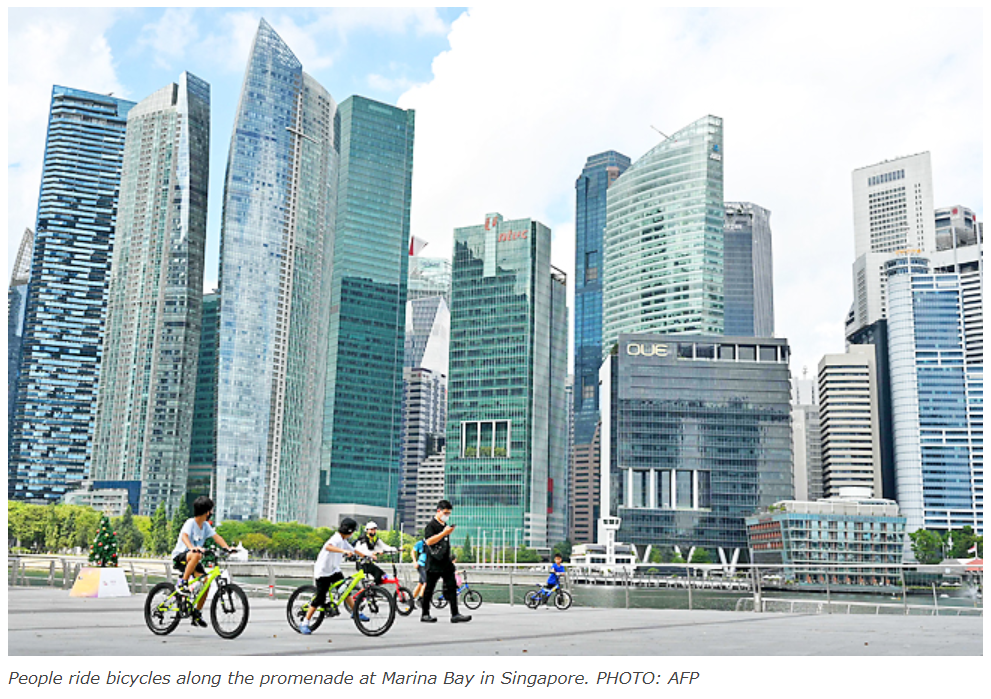Singapore core inflation continues to climb
SINGAPORE (THE STRAITS TIMES) – Singapore’s overall and core inflation continued to climb in November, after both benchmarks hit their highest in several years the previous month.
Both benchmarks rose faster than economists had predicted.
Core inflation, which excludes rents and private road transport costs, climbed to 1.6 per cent last month from 1.5 per cent in October, amid rising services costs, said the Monetary Authority of Singapore (MAS) and the Ministry of Trade and Industry (MTI) yesterday.
Analysts polled by Bloomberg had expected core inflation to remain unchanged at 1.5 per cent. The last time the core inflation rate was higher was in March 2019, when it hit 1.7 per cent. Core inflation, which better captures the underlying trend in consumer prices, is the measure that MAS monitors most closely in its review of Singapore’s monetary policy.
This is expected to rise further in the months ahead.
MAS and MTI said that rising import and labour costs, as well as recovery in domestic economic activity, will support a steady increase in core inflation in the quarters ahead.
Overall inflation edged up to 3.8 per cent in November, from October’s more than eight-year high of 3.2 per cent.
The increase was driven by stronger private transport inflation and the higher core inflation.
It outdid the 3.4 per cent forecast by analysts polled by Bloomberg.
Private transport inflation rose to 17.9 per cent, from 14.3 per cent the previous month, on the back of a larger increase in car prices.
Electricity and gas costs also saw a steeper increase – of 10 per cent in November, compared with October’s 7.8 per cent – mainly due to a decline in the number of households on standard price plans for electricity.
The exit of retailers under the Open Electricity Market (OEM) led to affected household accounts being transferred to SP Group. Standard price plans provided by retailers under the OEM are generally priced lower than the regulated tariff charged by SP Group Services inflation edged up to 1.9 per cent, from 1.6 per cent in October, due to a faster pace of increase in airfares as border restrictions eased, and a smaller decline in telecommunication services costs.
Accommodation inflation also rose – standing at 2.7 per cent, compared with October’s 2.5 per cent – as housing rents increased more rapidly.
Food inflation, likewise, edged up to 1.9 per cent in November, from 1.7 per cent the previous month, due to a sharper increase in non-cooked food prices.
The increase in the prices of prepared meals remained unchanged.


 Thailand
Thailand




